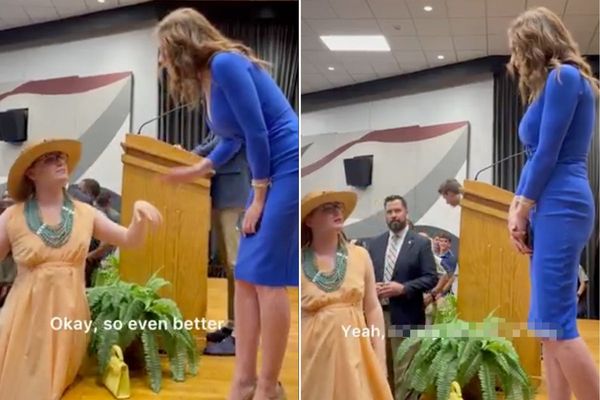An innocent man ordered into a police car and taken to a station to be strip-searched said he "felt abused" after being told to expose himself.
Anthony Owens, 40, was walking along Oriel Road, Bootle, towards his sister's house on the evening of May 21, 2018, when an unmarked police car suddenly pulled to a stop next to him and two pain-clothes officers jumped out. According to Mr Owens, the officer asked him "have you ever been strip-searched?", to which he replied he had not, and was told: "Well, you're about to be."
Mr Owens was taken to Marsh Lane Police Station where he was told by an officer "stand there and do exactly what I tell you to do, very slowly". He was ordered to remove his clothing and then asked to move body parts as officers searched for Class A drugs.
READ MORE: Moment thugs 'ram raid' jewellery store as shoppers watch on
He said: "I was in shock, to be honest, I suffer a bit with anxiety and it was a shock, two strange men snatching me off the street. They were asking me 'are you being told to do anything you don't want to do', like storing drugs, and I was like 'I don't know what you're talking about'. I just said 'I feel like crying, to be honest'. I felt degraded, it felt like I had been abused."
No drugs, cash or other incriminating items were found on Mr Owens and he was allowed to leave. He later sought the services of James Murray Law, which launched a legal claim against the force on his behalf, arguing the force had not followed guidelines and carried out an unlawful search.
In response to the legal action, Merseyside Police claimed Mr Owens had behaved suspiciously and was seen with "his head on a swivel". The force suggested he had "performed a transaction" with someone inside a car, while Mr Owens said the driver had stopped and asked him for directions.
The long-running case also raised an unusual legal argument over the difference between a strip search and a more intrusive "intimate search" under the Police and Criminal Evidence Act 1984 (PACE), which sets rules on how police deal with suspects during and after arrest.
According to Sections 55 and 56 of PACE, an intimate search can only be forcibly carried out to look for dangerous weapons - but can also be used to search for Class A drugs if the suspect agrees and if a senior officer has deemed it necessary.
The case reached the High Court where a judge ruled Mr Owens had been strip searched but his treatment did not count as an intimate search as previous cases had established there needed to be "physical contact inside an orifice".
Mr Owens' legal team continued the case, claiming that procedural rules were not followed and a trial was set to take place earlier this year, following a number of covid related delays.
However Merseyside Police opted to settle the case out of court last month without any admission of liability. Mr Owens said he was awarded £5,000 in compensation, but the force had also agreed to settle his legal fees running into the tens of thousands.
He said: "I think with the cost of living and prices going up it will help me with that. I have given my mum a little bit of money for a holiday."
Merseyside Police said it had agreed to settle the case "due to the unavailability of a key officer witness" and defended the use of stop-and-search. A spokesman said: “Stop and search is an absolutely vital tool in tackling crime, and part of the reason we continue to be marked ‘Outstanding’ in our approach to serious and organised crime in Merseyside. The force is committed to ensuring officers are professional and ethical when carrying out stop searches, and take the time to explain to those they are searching why it is being done and what their rights are.
"The force abides by national guidelines and procedures in relation to stop and search and has an established force legitimacy team which has been pivotal in creating the independent public scrutiny panels (made up of members from our communities) for stop and search.
"We have embedded greater scrutiny of stop and search and use of force with members of the public involved, looking at body worn video of stop and searches conducted by our officers and providing feedback – positive and negative. Any learning for the organisation and positive feedback that should be reinforced is captured and shared."
Elliot Smallshaw, a solicitor at James Murray Law, told the ECHO: "Cases of this nature are vitally important as they enable individuals to put their case forward in a court of law, to be heard and to have a ruling in respect of the causes of action which they bring.
"Ultimately, these cases allow individuals to be vindicated and compensated for challenging unlawful conduct by a public authority, thereby reducing the likelihood of repeat behaviour towards them and the general public. It also enables the Police to learn lessons from its wrongdoing and train its officers accordingly."
READ NEXT:
Thomas Cook passenger 'had one pint of lager' before causing flight chaos
Moment thugs 'ram raid' jewellery store as shoppers watch on
Daughters devastated after tragic dad given ten times medication dose
Face of kidnapper who was stabbed after abducting 12-year-old bo y
Port of Liverpool redundancies planned as bosses say market sees 'significant decline in volume'







